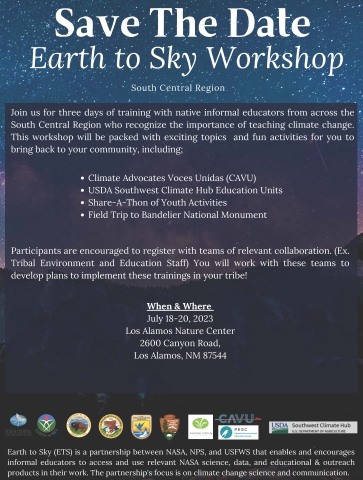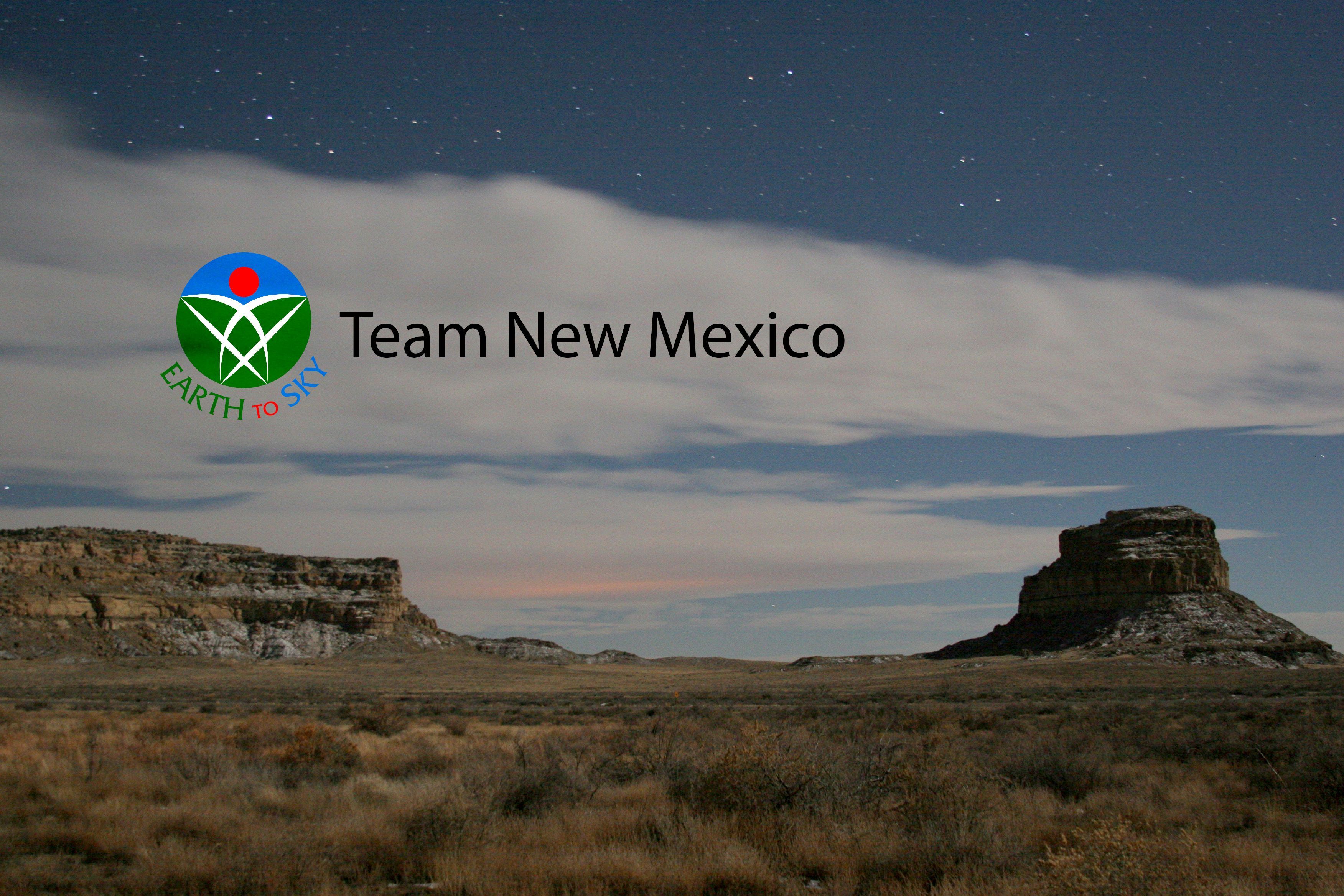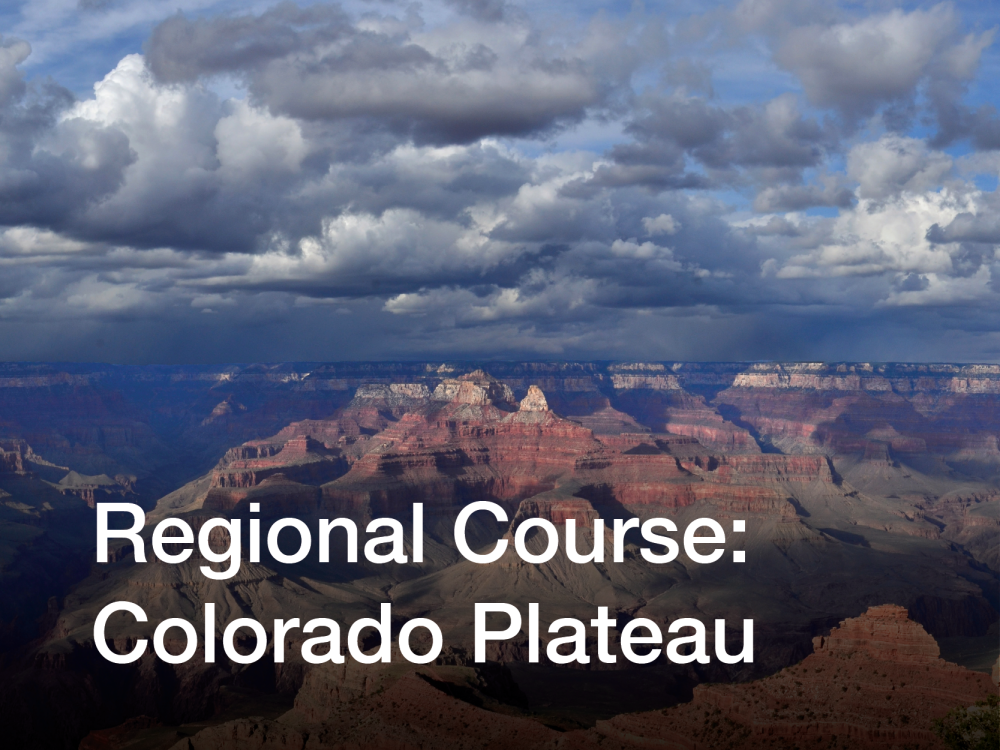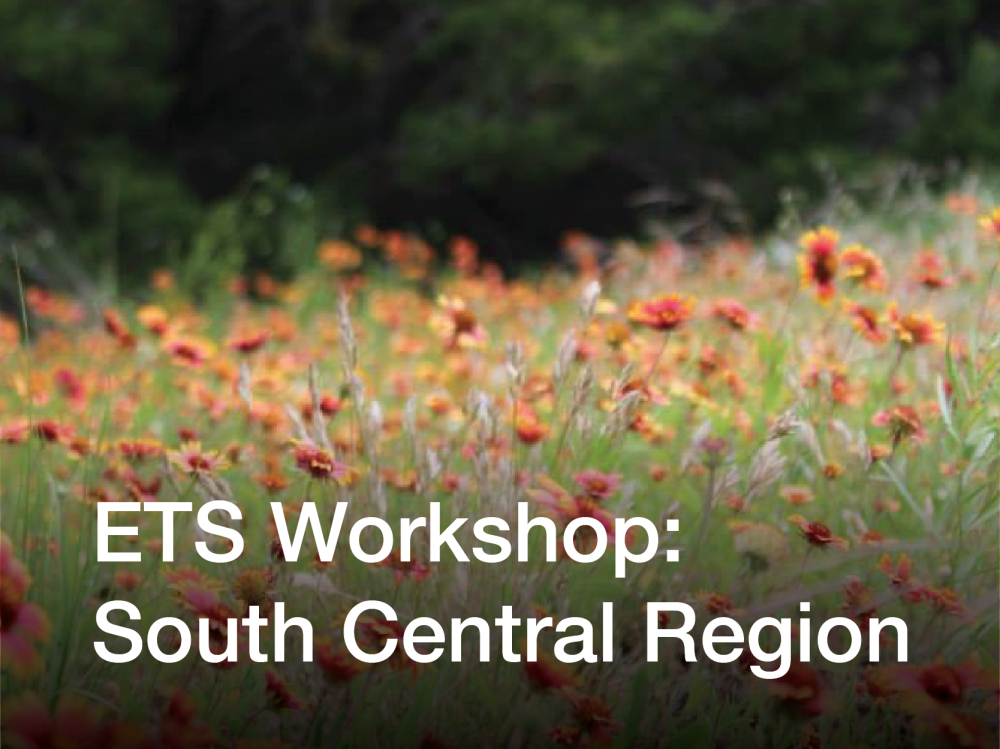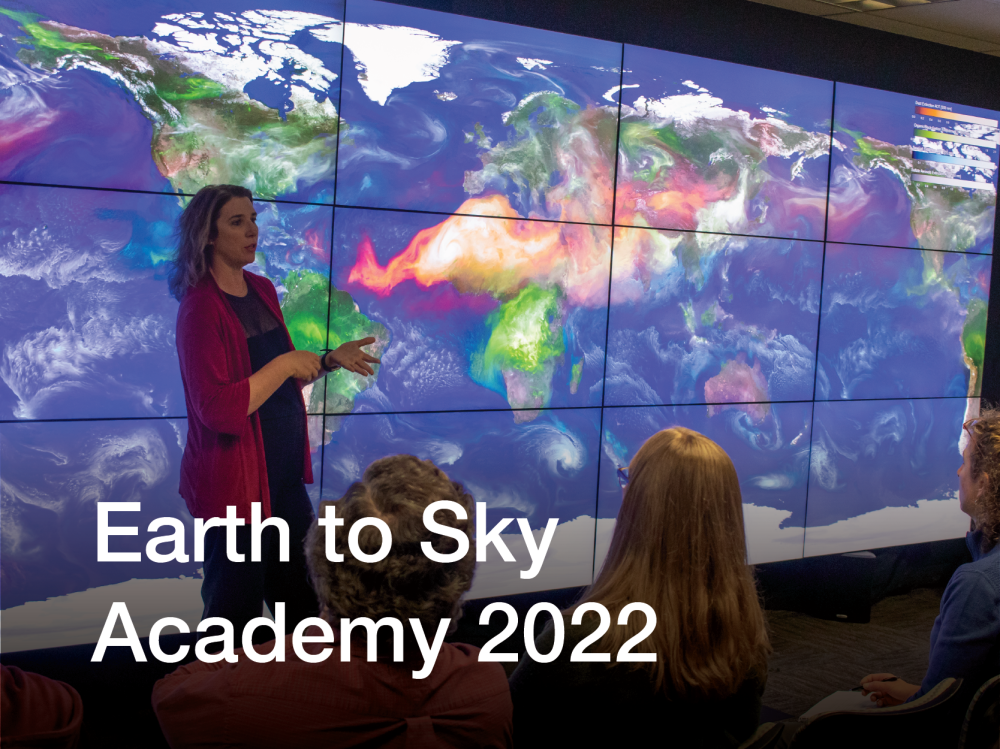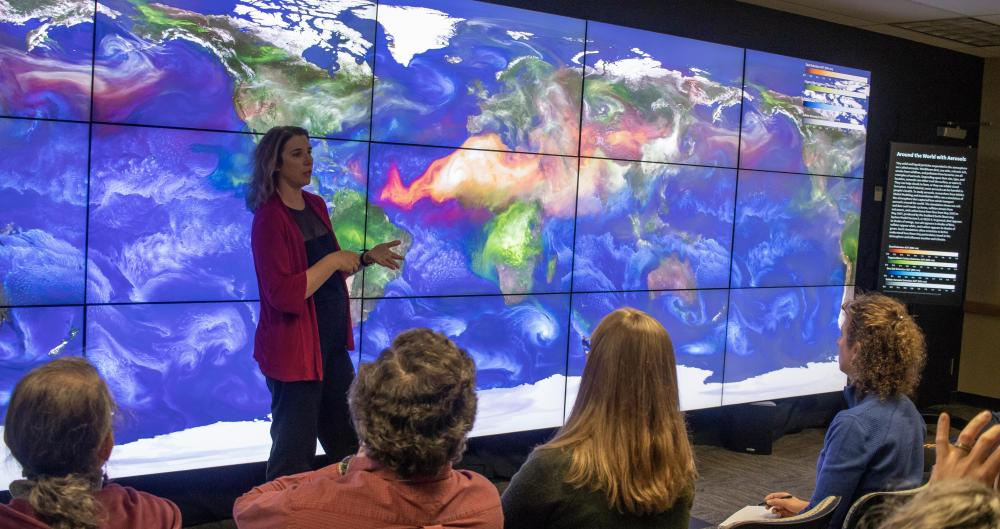- Details
Upcoming training in New Mexico!
Earth to Sky's Team South Central Climate Adaptation Science Center will host a three-day training with Native informal educators across the South Central Region.
Course Website (Participants Only)
The course will be July 18 - 20, 2023, at the Los Alamos Nature Center in New Mexico.
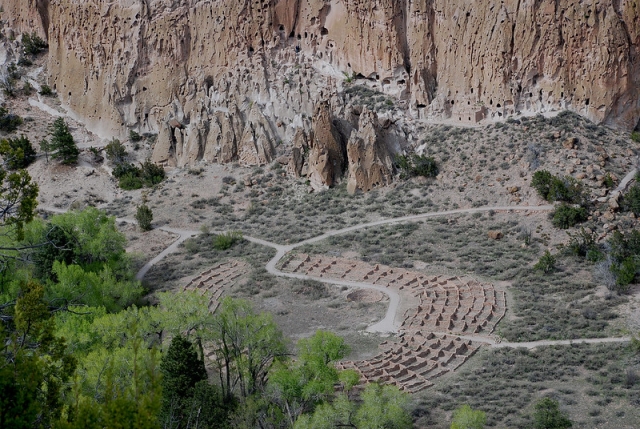
The village of Tyuonyi. Photo by NPS.
The workshop will be packed with exciting topics and fun activities for you to bring back to your community, including:
- Climate Advocates Voces Unidas (CAVU)
- USDA Southwest Climate Hub Education Units
- Share-A-Thon of Youth Activities
- Field Trip to Bandelier National Monument
Participants are encouraged to register with teams of relevant collaboration (e.g., Tribal Environment and Education staff). You will work with these teams to develop plans to implement this training material in your Tribe!
Applications are closed for this workshop.
- Details
Applications due August 11th!
Climate Change Science & Communication: A Regional Approach
Earth to Sky - Fire, Water, Heat, and Hope – Oct. 25-27, 2023
Interpreting Climate Change in New Mexico
Rio Grande Nature Center, Albuquerque, New Mexico
There’s never been a better time to engage your visitors, staff, and communities about the impacts and implications of climate change in New Mexico. Join with colleagues in a supportive community of practice to learn about the science of climate change and share best practices in climate communication.

Fajada Butte. Credit: NPS
Climate Change Science & Communication
Fire, Water, Heat, and Hope: Interpreting Climate Change in New Mexico, provides you with a foundation in climate science with an emphasis on the connection between global to local processes and on climate impacts in this region. Participants will discuss and practice proven methods for successful climate communication and connect with the growing Earth to Sky community of practice – over 700 communicators and scientists from a variety of organizations improving and sharing their expertise on this topic. You will leave the course armed with knowledge about cutting-edge climate science and a plan for bringing the climate story to your visitors in engaging and inspiring ways.
- Offered through the Earth to Sky (ETS) NASA-NPS interagency partnership
- No Tuition Fee
- Travel expenses are the responsibility of participants and/or their institutions
- A limited number of scholarships are available
Course Objectives
Upon completion of the course, participants will be able to:
- Design and execute an action plan to collaboratively produce a climate change education, outreach, and/or interpretative product/program.
- Engage with the Earth to Sky community, both regionally and nationally, to exchange ideas and expertise and to facilitate implementation of their action plan.
- Using an Earth Systems Science approach, describe at least one connection between global, regional, and local Earth processes affecting climate in their region.
- Describe the significance and implications of environmental change in their region to society and natural systems.
- Describe how global climate-related changes in ecosystems, economies, or society may impact their region.
- Choose suitable communication strategies for a particular audience based on available audience research and engagement with their audience.
- Use engaging, audience-appropriate communication techniques, such as metaphor, analogy, visual imagery, storytelling, dialogic questions, or co-creation of knowledge in their product/program.
- Select relevant, audience-appropriate NASA science content and/or educational/visual elements to use in their product/program.
- Identify and access credible sources of accurate and timely climate change science relevant to their region/site.
Course Structure
This course emphasizes experiential learning. It starts with a few distance-learning components that participants are required to complete prior to attending the three days of face-to-face sessions in Albuquerque. Participants are expected to be present and fully participate in all of the face-to-face sessions. Approximately four months later, a one-hour webinar will be held for participants to share progress and challenges and receive feedback/assistance in executing their action plans. The collegial atmosphere of this course provides participants with many opportunities to engage with scientists, communication practitioners, and colleagues in collaborative learning.
Preliminary Assignments
These will be referred to and used during the face-to-face sessions.
- Complete on-demand web-based module on Earth system science (1-2 hours)
- View climate science essentials videos: Carbon Cycle, and Energy Budget (1 hour)
- Conduct interview with subject matter expert about climate using provided outline (1 hour)
- Read short excerpt from CRED Psychology of Climate Change Communication (20 min)
- Read excerpt from the Norms of Collaboration (30 min)
- Read article about Communities of Practice

Credit: USFWS
Face-to-Face Sessions in Albuquerque
- Scientists from NASA and other agencies will present climate science in both global and regional contexts followed by discussion sessions to apply that content in participants’ work setting.
- A field trip to Valle de Oro, National Wildlife Refuge will serve as a case study illustrating climate science/research and a model for climate communication.
- Dedicated time to work with colleagues, coaches, and experienced mentors as part of a regional community of practice to create an action plan for developing a product or program applying course content for use in their site or organization. Participants are encouraged to reach out to internal and external communities as they execute these action plans.
- Opportunities to meet and talk with world-class climate scientists, including NASA scientists studying changes in New Mexico.
- Learn climate change communication best practices through presentations from ETS alumni.
- Practice selected communication methodology appropriate to participants’ work settings.
About Earth to Sky
Earth to Sky (ETS) is an ongoing and expanding partnership between NASA and the National Park Service (NPS) that enables and encourages interpreters, educators, and science communicators to access and use relevant science, data, and educational and outreach products in their work. Since 2008, the partnership has conducted many professional development events on the topic of climate change.
Who should attend?
Experienced interpretive staff, education specialists, public affairs officers, and any other experienced non-formal educators from the private or public sector interested in collaborating with others to communicate about climate change.
Requirements
To attend this course, participants should have prior experience in communications (i.e., interpretation, environmental education, outreach, and/or public affairs). Individuals must complete the Application Form illustrating their interest and experience in climate change communications. Experience or knowledge of climate science is not a prerequisite.
Credit: USFWS
Expectations of Participants
- Complete ~4 hours of preliminary assignments outlined above in preparation for the face-to-face sessions.
- Be present and fully participate in all three days of face-to-face sessions.
- Create an Action Plan for developing an interpretive, educational or outreach product or program applying course content.
- Within one year, produce and share with the ETS community, a synopsis of an implemented interpretive/educational/outreach product incorporating NASA science content.
- Participate in post-course reporting and evaluations, including a one-hour follow-up webinar with fellow course participants.
Selection Process
The course planning team will carefully review and make selections based on information provided in your Application Form. The maximum class size is 25. Those not selected during the first round will be placed on a waitlist to backfill any cancellations.
How to Apply
Complete this application then email it to peter.lipscomb at emnrd.nm.gov. If you prefer to submit your application by USPS Mail, send to the address shown below. To obtain a copy you can complete and return by mail, call 505-474-0196.
Cost
No Tuition. Travel expenses are the responsibility of participants and/or their institutions. A limited number of scholarships are available.
Questions?
Earth to Sky Team New Mexico contact is:
Peter Lipscomb
Earth to Sky Team New Mexico
Cerrillos Hills State Park
P.O. Box 460
Cerrillos, NM 87010
Phone: 505-474-0196
Email: peter.lipscomb at emnrd.nm.gov
Be sure to mention Earth to Sky in your message if your call is not immediately answered.
Sign up for updates from Earth to Sky Team New Mexico, and share this link with your colleagues who want to learn more about climate change!
https://mailchi.mp/c61161407933/earth-to-sky-eblast-sign-up-page
Image at top: credit Peter Lipscomb
- Details

In a decade of rising fires and falling water lines on the Colorado Plateau, interpreters, informal educators, and Tribal professionals are the front lines of communicating climate science and engaging the public in ways that inspire action and hope. This course is designed to deepen participants' understanding of climate science and expand their climate communication and interpretation skills.
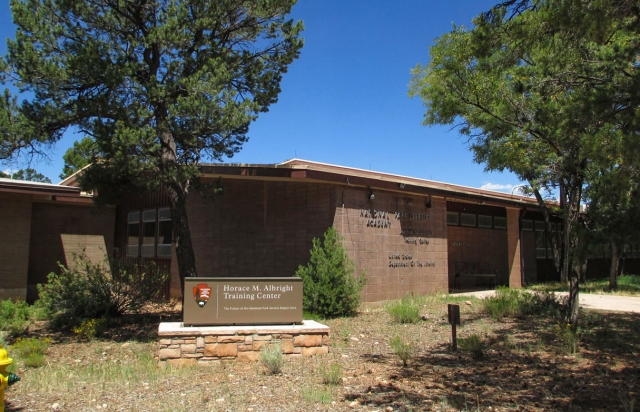 The Horace Albright Training Center at Grand Canyon National Park.
The Horace Albright Training Center at Grand Canyon National Park.
|
- Details
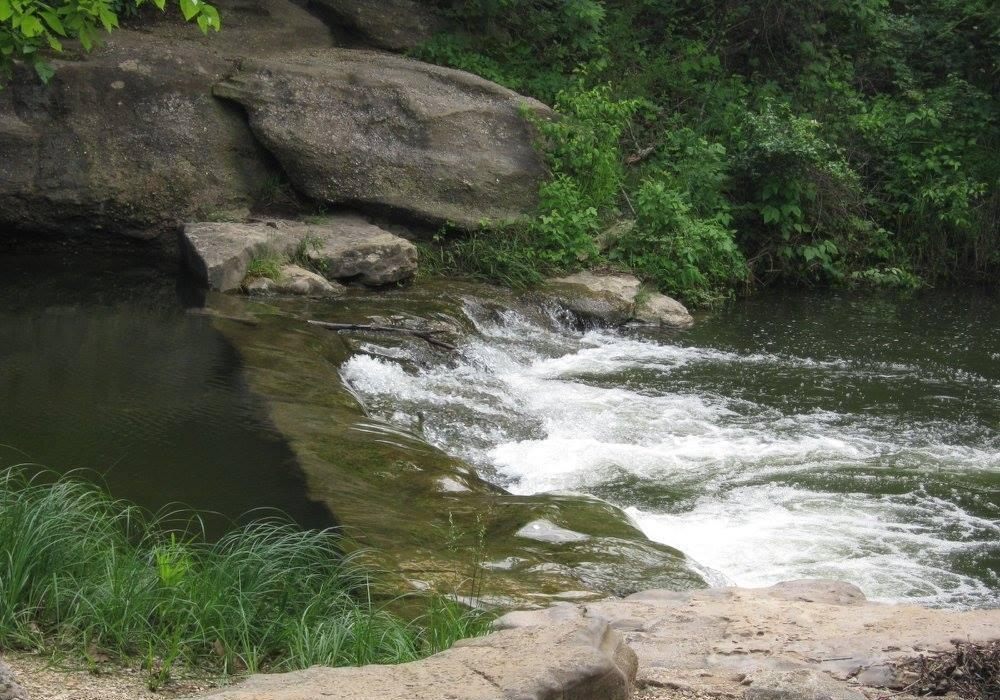 This course will include a field trip to Chickasaw National Recreation Area. (NPS Photo)
This course will include a field trip to Chickasaw National Recreation Area. (NPS Photo)
Join us for three days of training with native informal educators from across the South Central Region who recognize the importance of teaching climate change. Participants are encouraged to apply as teams of 3–5 collaborators (e.g. Tribal environment and education staff). You will work with these teams to develop plans to implement an youth outreach activity in your tribal community!
|
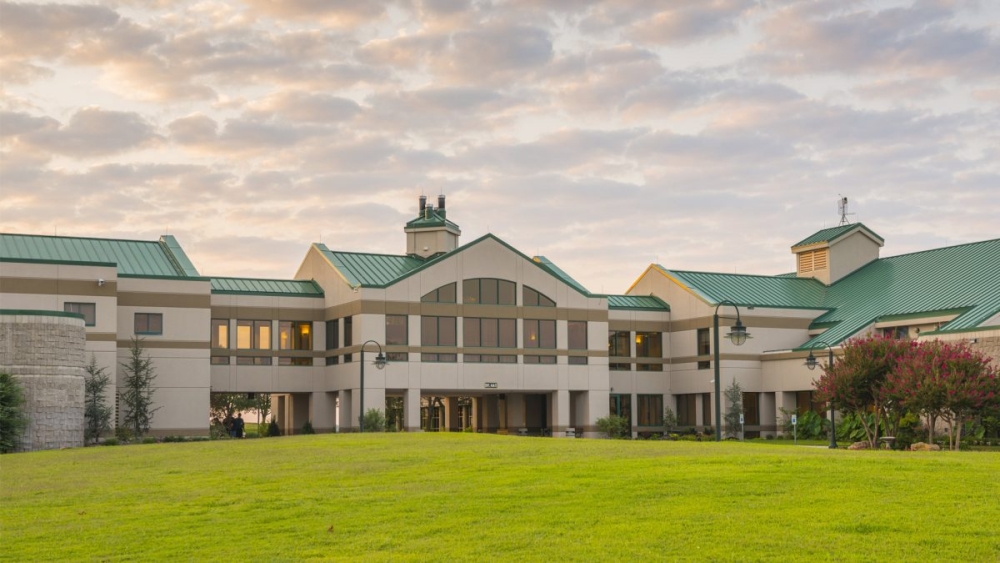 Chickasaw Retreat and Conference Center
Chickasaw Retreat and Conference Center
- NASA Arctic & Earth Signs Training
- NASA Living Landscape Project
- Shar-A-Thon of Youth Activities
- Field Trip to Chickasaw National Recreation Area
Contact This email address is being protected from spambots. You need JavaScript enabled to view it. with questions.
- Details
A tuition-free course for interpreters, informal educators, and science communicators interested in creating and nurturing regional communities of practice focused on improving climate science communication.
- When: October 17–21, 2022
- Where: NASA Goddard Space Flight Center (Greenbelt, MD)
Participant Webpage (Accepted participants only)
The Earth to Sky Academy is intended for teams of experienced informal educators and climate communication leaders who have a strong commitment to furthering climate literacy within their respective regions.
The purpose of the Academy is to train Regional Leaders who will conduct regional Earth to Sky (ETS) courses and nurture their own Earth to Sky Regional Community of Practice. Academy content is based on over 17 years of experience and extensive evaluation of the ETS model. Participants will be supported every step of the way, before, during, and after the course.
- Details
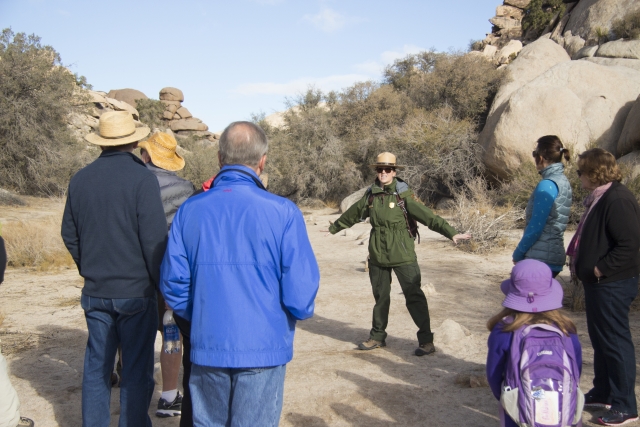 Join Earth to Sky at the National Association for Interpretation 2021 Annual Conference in Palm Springs!
Join Earth to Sky at the National Association for Interpretation 2021 Annual Conference in Palm Springs!
We are partnering with Joshua Tree National Park to offer a highly interactive two-day pre-conference workshop, emphasizing experiential learning in a collegial environment with peers and scientists. We’ll spend our first day at Joshua Tree NP, exploring the science of global climate change through the lens of desert ecosystems. At the park, we will observe climate impacts and engage in a discussion with interpreters and educators about effective techniques and strategies for interpreting climate change in a hopeful way, for a variety of audiences.
- Details
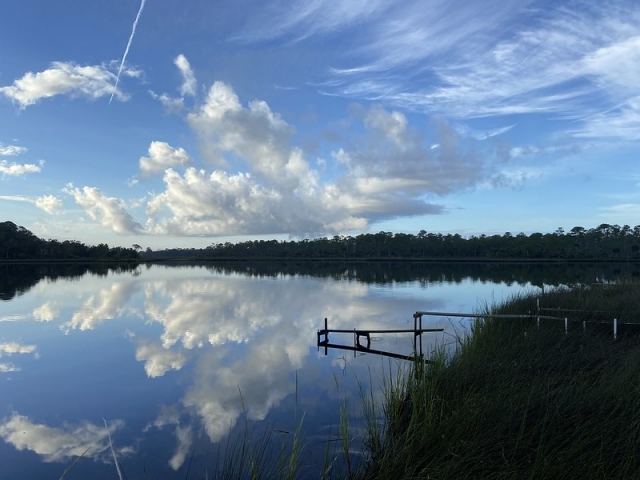
Earth to Sky is partnering with the Guana Tolomato Matanzas National Estuarine Research Reserve (GTM Research Reserve) to provide a two-day pre-conference virtual workshop, November 5-6, 2020. The workshop is offered in association with the National Association for Interpretation 's annual conference.
Registration deadline: 11/01/2020
The highly interactive workshop will emphasize experiential learning in a collegial, resource-rich environment with peers and scientists.

